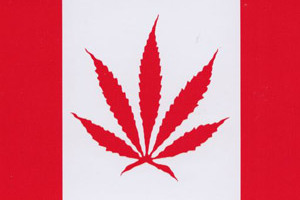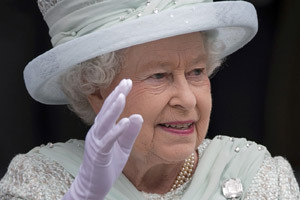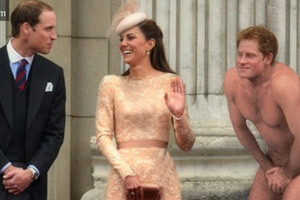Canada's affliction
 Substance abuse, according to an extract from the Diagnostic and Statistical Manual of Mental Disorders, Fourth Edition, (DSM-IV), can generally be defined as a "maladaptive pattern of use indicated by ... continued use despite knowledge of having a persistent or recurrent social, occupational, psychological or physical problem that is caused or exacerbated by the use or by recurrent use".
Substance abuse, according to an extract from the Diagnostic and Statistical Manual of Mental Disorders, Fourth Edition, (DSM-IV), can generally be defined as a "maladaptive pattern of use indicated by ... continued use despite knowledge of having a persistent or recurrent social, occupational, psychological or physical problem that is caused or exacerbated by the use or by recurrent use".
Hypothetically speaking, let us consider Dick and Jane: two ficticious substance abuse case study examples. Dick has enough money to consume copious quantities of alcohol every weekend but, despite his bingeing behaviour, claims to be "too skint" to buy his children bicycles. Some people might not be prepared to say that Dick has a substance abuse problem but I'd wager that most folks would probably acknowledge that Dick's priorities weren't straight. In either event, it'd be pretty tough to view Dick as the quintessential role model when he's slurping Jack Daniels out of his World's Greatest Dad coffee mug at eight o'clock every Saturday morning. Taken one step further, if Dick's children were being denied basic sustenance or adequate medical and/or dental care, I think most of us would say that Dick had a substance abuse problem and we'd voice an opinion with respect to the children's welfare.
I have no compulsion, nor desire, to debate the issue of marijuana as an addictive or non-addictive substance though I suspect it would be pretty easy to uncover a substantial amount of contradictory views on the issue. Perhaps in the not too distant future I'll post a missive on that very subject but, for the time being, suffice it to say that I'm not willing to close my mind to ANY evidence which extols the virtues of medical marijuana and the benefits some patients may derive from its active ingredient. What I will say, without reservation, is that inhaling smoke, of any sort, is detrimental to one's health so while I am willing to acknowledge that the active ingredient in pot may be beneficial to some patients, the detrimental effects of smoking marijuana may offset those benefits.
Now let's consider Jane. Jane is a single mother who, after picking up her daughter from subsidized daycare and settling in for the evening in her subsidized two-bedroom garden home, fires up her dragon-laiden water bong and smokes a bowl of head cabbage. Jane's use of marijuana does not meet the criteria of an addiction by its clinical definition, but her regular recreational use of the drug, despite the health consequences, certainly brings her into the substance abuse realm.
The use (and abuse) of alcohol and marijuana in Canadian society, as significant as they may be, is not Canada's biggest affliction. Nor is it the use of heroin, cocaine, methamphetamine, or tobacco. It is a far more ominous substance; reinforced by notions of nobility, majesty and pageantry and deep-rooted in the ideology of culture, heritage and tradition. I refer, of course, to the British monarchy.
 When you ask the average Canadian taxpayer why Canada maintains its ties to the British Crown you'll be inundated with a plethora of reasons caked in irrationality. When I posed this question to a group of people on an email mailing list, I received several responses: "It's part of our heritage!", some opined. "It's a matter of tradition and part of our culture", others asserted. Over the centuries, a number of civilizations have not only practiced the art of human sacrifice, but also refined it in an effort to appease their respective gods. And while appeasing the gods by human sacrifice might have seemed rational to the majority of the members in those societies, excluding the objects of sacrafice of course, in a similar fashion, the worship of Monarchs, to non-monarchists, is analogous to tossing virgins into a volcano. Ironically, tossing a few Monarchs into a smouldering volcano might make more inherent sense to non-Monarchists. Nonetheless, I received only one plausible explanation as to why many Canadians view the Royals with such high esteem. "It makes us feel good!" explained Betty, a lovely woman from Wolfville, Nova Scotia, whom, I presume, to be a Monarchist. Given that some people might argue that a bottle of hooch or a bag of dope might "make them feel good", I fear Betty's commentary is profoundly more accurate than she may have intended.
When you ask the average Canadian taxpayer why Canada maintains its ties to the British Crown you'll be inundated with a plethora of reasons caked in irrationality. When I posed this question to a group of people on an email mailing list, I received several responses: "It's part of our heritage!", some opined. "It's a matter of tradition and part of our culture", others asserted. Over the centuries, a number of civilizations have not only practiced the art of human sacrifice, but also refined it in an effort to appease their respective gods. And while appeasing the gods by human sacrifice might have seemed rational to the majority of the members in those societies, excluding the objects of sacrafice of course, in a similar fashion, the worship of Monarchs, to non-monarchists, is analogous to tossing virgins into a volcano. Ironically, tossing a few Monarchs into a smouldering volcano might make more inherent sense to non-Monarchists. Nonetheless, I received only one plausible explanation as to why many Canadians view the Royals with such high esteem. "It makes us feel good!" explained Betty, a lovely woman from Wolfville, Nova Scotia, whom, I presume, to be a Monarchist. Given that some people might argue that a bottle of hooch or a bag of dope might "make them feel good", I fear Betty's commentary is profoundly more accurate than she may have intended.
Queen Elizabeth is a 66-pounder of Crown Royal, brilliantly robed in velvetty royal blue packaging. Veteran Monarchists flock to her like rubbies to a bottle of plonk. Prince Charles and Camilla, the latter ranked as one of The 25 Ugliest Celebrities, are akin to two dime bags of home-grown weed. The passive monarchist might catch a modest head-buzz but diehard monarchists will experience a short-lived light-headedness, followed by the munchies. Even to the most seasoned monarchist, Big Ears and Camel Face can't provide the full-fledged hydroponic body stone that Chuck's first wife, Lady Diana, unleashed on the unwashed masses when she strutted her stuff. In the vernacular of pot-heads, she was "wheel-chair dope".
 Because two generations of majestic leeches were insufficient to satisfy the appetite of an expanding demography and, as such, a growing number of addicted Monarchists, Charles & Diana did their bit for king and country to expand the Royal lineage. As a consequence, Prince William and Prince Harry became additional opiates. And this month, the Royal family tree sprouted a 4th generation after Catherine Middleton, who married William in 2011, gave birth to a son; more on the son's name in a moment. Will & Kate, as they've come to be known, are, to the addicted Monarchist, two perfect lines of cocaine and their recent spawn, George, is a tiny, shiny silver spoon. Harry, on the other hand, is a far more caustic and unpredictable substance. He remains hidden, for the most part, outside the purview of the public and less often the topic of discussion. That is, of course, until he rears his ugly head and puts on a Nazi uniform or, in some cases, takes if off. That is to say he takes it ALL off! That's when Harry's true substance is revealed as he becomes, for the seriously addicted Monarchist, Walter White's Blue Sky crystal meth.
Because two generations of majestic leeches were insufficient to satisfy the appetite of an expanding demography and, as such, a growing number of addicted Monarchists, Charles & Diana did their bit for king and country to expand the Royal lineage. As a consequence, Prince William and Prince Harry became additional opiates. And this month, the Royal family tree sprouted a 4th generation after Catherine Middleton, who married William in 2011, gave birth to a son; more on the son's name in a moment. Will & Kate, as they've come to be known, are, to the addicted Monarchist, two perfect lines of cocaine and their recent spawn, George, is a tiny, shiny silver spoon. Harry, on the other hand, is a far more caustic and unpredictable substance. He remains hidden, for the most part, outside the purview of the public and less often the topic of discussion. That is, of course, until he rears his ugly head and puts on a Nazi uniform or, in some cases, takes if off. That is to say he takes it ALL off! That's when Harry's true substance is revealed as he becomes, for the seriously addicted Monarchist, Walter White's Blue Sky crystal meth.
Though the Royals are a highly sought after commodity by monarchists, to the non-monarchist, they are a noxious substance with no social value. Royalty is an affront to the equality of the person and serves only to sustain a social structure entrenched by the inequality of hegemony. It is precisely the recognition of that inequality which makes the "Autonomous Collective" skit in Monty Python's Holy Grail so damned funny. Not surprisingly then, non-monarchists have difficulty understanding the allure in anything Royal and justifying the monarchy's raison d'etre. Staunch defenders of the monarchy have suggested that, in fact, the Royal family is a source of revenue for the United Kingdom. And while such an argument may serve as a justification for maintaining the Royals to British taxpayers, it is of little import to the Canadian experience. The bottom line is an immutable fact: the Royals cost Canadian taxpayers a shitload of money!
According to the Financial Post, we are poised to leave the next generation of Canadians a legacy of debt somewhere around $1.2 trillion. Moreover, the estimate, which includes a "current federal net debt of $676-billion", continues to grow. Anyone actually interested in knowing their share of the national federal debt need only consult the National Debt Clock on the Canadian Taxpayers Federation website. Does the Canadian government's spending habits, by picking up the $68-million tab to cover the cost of the royal wedding, differ significantly from that of Dick & Jane, the hypothetical substance-abusers noted above? Given Canada's current debt load and bleak financial outlook, is it prudent to piss away money subsidizing Royal visits simply because it makes a few monarchists "feel good"? Does such a frivolous waste of resources, given Canada's present financial woes, not constitute a recurrent and detrimental behaviour which causes social harm? To this end, I would argue that the monarchy is Canada's worst affliction and a dangerous substance. In addition to legions of addicted monarchists, this country also boasts vast numbers of unemployed sociologists who, I'd argue, are likely well equipped to develop a 12-step programme for Monarchists. Monarchists Anonymous: the first step is acknowledging there's a problem.
This month, the masses were inundated with media coverage postulating the date, gender and, immediately following its birth, the name of Will & Kate's rugrat. I'm not sure what Vegas bookies were giving on George, the name they chose for the screaming little Royal jeezler, but I'd bet half my stuffed armadillo collection and two bottles of Wild Turkey that it was a significantly safer bet than any name I'd have gotten gratification from. Prince Adolph, for instance, might have been chosen in recognition of the family's cultural heritage. Or, if diplomacy with the Islamic world were considered, Prince Mustafa might have been chosen. But my personal favourite, in remembrance of his grandmother who died so young and tragically: Prince Dodi. Much to my chagrin, nobility opted for tradition and they went with the name George, the namesake of Lizzy's father. If there were true justice in the world, the future would play out thus:
A distant Queen Elizabeth, seated on a Victorian couch, holds a gold-trimmed saucer in her left hand and sips from a cup of tea held in her right. Across from her on a loveseat, in a large, quiet, sterile room, sits Kate. Directly in front of Kate is a plush baby carriage which she rocks gently with her right foot.
As Kate stops rocking the carriage, a sound emanates from within. "Ma... ma... ma," interrupted by spittle gurgling noises, "ma... ma." A large burst of flatulence erupts from child, followed by a baby laughing. As Queen Elizabeth frowns in disgust, Kate giggles nervously and leans forward to check on the young prince. "Ma... ma.... ma," continues the small bundle, "ma... ma... mama."
Kate smiles, captivated by the sound of baby-babble which now filled the room. George, now cognisant of his mother's attention, becomes more boisterous, "Mama! Mama! Mama!" he mutters through mouthfuls of sputum. "Mama! Mama!
"Is he saying Mama?" Liz asks.
"Christ I hope so," quips Kate, "'cause if he's not, he's stuttering just like your father did."
Submitted by Norm de Plume, 31 July 2013